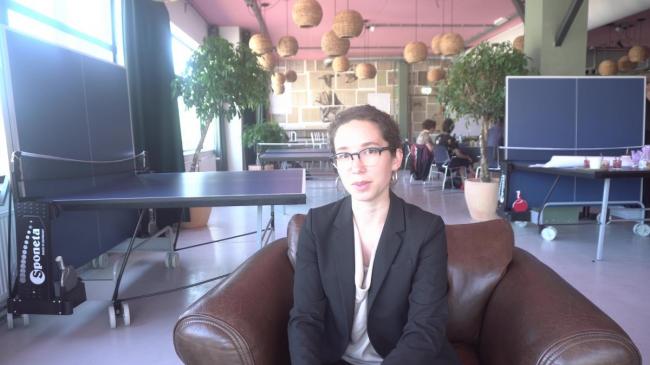Why Water for Good applies a systems approach in the context of complex emergencies.
Published on: 27/02/2019
Next in this series of IRC 50 interviews, we talk to Adrienne Lane, Chief Strategy Officer at Water for Good. We met up with her on the sidelines of the 1st Agenda for Change (A4C) Learning & Reflection Meeting in The Hague, the Netherlands.

CD: How has Agenda for Change (A4C) and IRC helped you with your work so far?
AL: Water for Good really has been influenced by IRC and Agenda for Change (A4C) in our organisational development. Starting around 2011-2012 we were interested in a lot of the IRC's publications, which we started to read and become more influenced by the approach to systems change thinking and sustainability. We began to recognise the role that our organisation plays in a broader system of water service delivery.
We work in just one country - the Central African Republic (CAR). The main focus in a country like the CAR is on emergency response and humanitarian intervention. Our organisation was always committed to think about sustainable service delivery especially for rural communities. IRC was really speaking to the unique challenges of that and helped inform our approach to focus on improving the water service delivery in the CAR, especially in rural water supply.
CD: How do you think the systems approach will influence your vision for the coming 10-20 years?
AL: When Agenda for Change (A4C) was formalised and we were invited to participate in the partnership, that was also a moment when our organisation was developing a vision for 2020 and even on to 2030. We incorporated the building blocks for sustainable service delivery in WASH systems into our organisational planning. We built our own theory of change, which was directly influenced by the building blocks. This in turn directly influenced our own trajectory.

We’re not positioned to act equally on all aspects of the building blocks but we recognise that our role in developing service provision by the private sector is only one piece of a broader puzzle. We’re seeking to leverage our work to influence the overall sector in the CAR and participate more actively as a part of the system rather than working in isolation.
So I think that the major influence of the A4C and also IRC has been in developing our thinking and our realisation of how we can take what we do best and leverage that as a part of a broader system even in the context of complex emergencies in a country like the CAR. If we can take that approach and deliver on those types of initiatives in the CAR, I think anyone could really benefit from learning from IRC and A4C and use the same approach in many diverse contexts.
Many thanks to Adrienne Lane for sharing her experiences with us. Do you also have a special story related to IRC? We'd love to hear it! Leave a comment or message us at communications@ircwash.org.
At IRC we have strong opinions and we value honest and frank discussion, so you won't be surprised to hear that not all the opinions on this site represent our official policy.